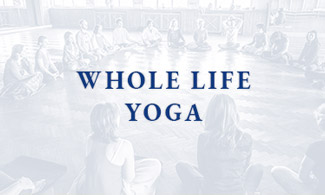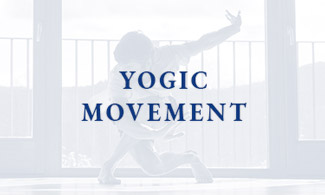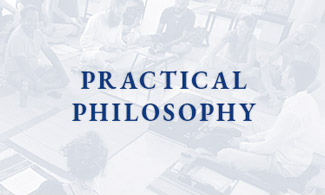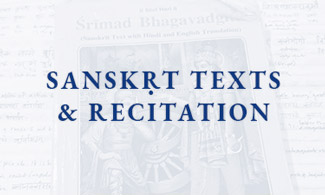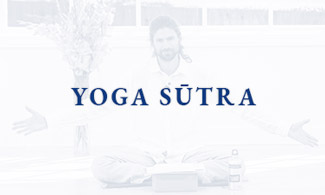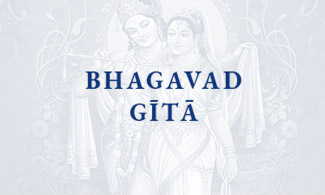
Into the Grey
For some time now I have been feeling to write an article about what I see as the need to go beyond divisive black and white thinking and step ‘into the grey’, to honestly, courageously wrestle with the nuance of reality and the complexity of life’s challenges.
Following my last newsletter, a couple of people contacted me asking if I might explain my views on travel, especially in the context of ‘climate’. It appears that for some people, air travel, along with eating meat, or accepting a plastic bag for example, has become something of a badge of dishonour. It has been placed on a ‘blacklist’ of banned items: ‘evil’ actions to be avoided, ‘irresponsible’ things that ‘should not be done’, ‘that should not be tolerated’… I feel rather that if anything should be ‘blacklisted’, it should be this type of extreme and reductive, absolutist attitude and its attendant sweeping blanket statements.
In recent times, I have noticed quite a lot of very extreme, polarising language in public discourse. I think we can do a lot better. I feel that exclusive, condemnatory or absolutist statements often block or limit the type of deeper deliberation and broader discussion that can help us move forwards to deal positively with the complex challenges we face as a species.
A foundational yoga teaching: sometimes that which would ordinarily be unconscionable is actually the appropriate action.
There is no list of ‘don’ts’ in yoga. If you see such a thing, it is a reductive interpretation of a subtler, more nuanced teaching. Yoga, like all the major traditional systems of Indian Art, Science and Knowledge, recognises that anything and everything in existence can be poison, anything and everything in existence can be medicine. It all depends: on the situation, the constitution, and the dose.
Another foundational teaching of Yoga
Life, Nature, is not black and white.
Life, Nature, is a realm of nuance in which there are always many, many more ways of looking at a question than from just two sides. There are infinite ‘sides’, shades, perspectives. So rather than dos and don’ts, rather than reductive lists and black and white thinking, yoga invites us into the grey: to wrestle with our conscience, to explore the ‘darklands’ that our conditioning may shield us from or blind us to.
With regard to the ‘climate’ or environment ‘issue’, for example, I had a powerful experience that showed me how much my prejudices or belief systems influenced how I perceived and even was able to perceive the issue.
A decade or so ago, I saw a film that was being promoted by the 350 organisation, (who were saying that we need to keep carbon parts per million below 350 if we are to survive as a species). The bigger message of the film, as it landed with me, was that we need to do a better job of looking after our home, this planet, that we need to start changing some of our inefficient and polluting habits: like shipping food hundreds and thousands of miles instead of eating predominatly local and seasonal food; like drinking water out of plastic bottles that are shipped hundreds or thousands of miles instead of investing in clean, healthy drinking water on tap all around the world, and so on.
Sympathetic to the film’s global message, I ‘swallowed’ its contents whole. Convinced of the good intentions of the makers and recognising from personal experience that many of the ideas they highlighted were real and true, I found myself easily persuaded by some of the other ideas that were novel to me. Enthusiastically, and with good intention, I sent an email encouraging all my friends and contacts to see this film and share its important message.
One of my friends wrote back asking, “Have you seen this other film James? You might want to have a look before you endorse this other one so unequivocally.” My friend pointed this out in a very humane way. He invited me to consider some additional perspectives. This was a man I met regularly and knew to be a person of integrity. I followed his tip and watched this other film. It presented a very different perspective on the issue, one that could perhaps be described as that of a ‘thinking skeptic’.
This second film presented ideas that challenged some things I had previously felt quite convinced about. I also felt that its spirit went against certain ideals or values that for me ran much deeper than the particular arguments about ‘speculative science based on modelling’. I felt this second film ignored what for me was the bigger, underlying point, of our need to change the way we relate to ‘ecos’, to our home this Earth. I noticed though, that I watched this second film through very different eyes from the first, whose overall message by and large accorded with the ideas that I had brought with me to the cinema.
When watching the second film, I noticed that my critical, analytical toolkit was instantly activated. As I was watching, I was instantaneously picking holes in its arguments. I was very aware of how certain things were being presented in a selective, partial, biased way. But what my friend’s prompting me to consider this other perspective left me with was an undeniable recognition that the first film had also presented things in a selective, partial, and yes, biased way.
But as its general message accorded with my pre-existing sympathies and ‘alignments’, I had not examined all its arguments with anything like the same rigour as for the second film. This made me see that I too had been somewhat ‘selective’. It had been easy and expedient to align with a particular ‘side’.
But this experience showed me that I had been deluding myself. Both ‘sides’ had the gall to present in a skewed way, in a manipulative, partial way. Both sides presented as ‘unassailable’ fact things which were really just ‘pieces’ of a much bigger and more complex picture.
The inconvenient truth* of the matter was not black and white. It was grey. The truth was in the grey. (*The two films I saw were not Al Gore’s film of this name, though both did reference it if I recall correctly. The film associated with the 350 organisation was called The Age of Stupid. I do not recall the name of the second film, and the emails are in a now many-years obsolete account I no longer have access to).
The Truth of things is grey
A little while after this, I had the privilege of meeting Satish Kumar speaking on Soil, Soul and Society in my hometown in the North of England. Satish gave a memorable talk and facilitated a day which has been of great lasting value for me. One of the particularly memorable messages from what he shared that day was:
“Let us make all isms wasms!”
In other words, let us make divisive, black and white thinking a thing of the past. An ism is a reaction. I’ll mention feminism as an example. Yes, I’m a man. Yes, I’m a ‘white’ man (at least by some people’s standards) in his fifth decade on this Earth. However, I did study British, American, French and Italian feminism and women’s writing when I was an undergraduate and have read several of the classics of feminist literature, so I will dare to mention this ism as an example and I do not do so casually. Like any ism, feminism could be seen to be a reaction to an imbalance, a terrible imbalance. The feminist, or women’s, movement has brought many great benefits, has helped redress some aspects of this imbalance. However, sometimes more extreme voices calling themselves ‘feminist’ go against what I understand to be one of the core principles of earlier feminism: the giving to people who are ‘different’ from, or other than, the dominant/mainstream/establishment the opportunity to live wholly and authentically, bringing the depth and value of their unique gifts to a healthier, wholler, more balanced society. More generally, sometimes, in reacting against the imbalance, the ism becomes ‘anti’ ‘the other’.
As soon as an ideology is ‘against’ the other, is anti, is negating, I would say that it reduces vastly its capacity to bring deeper healing and sustainable balance. It risks becoming another type of tyrant. As one of my Indian teachers says, “the crusader gets crusaded.” If we are ‘fighting for peace’, we have to take especial care not to lose our attunement to the ways of peacefulness. We get good at what we practice. Fighting and campaiging we can become ‘good’ at protesting and resisting. Well and good. Sometimes this is exactly what is needed. But there is a danger: that we become entrenched in the ways of the ‘opponent’ or protestor, and that we divert, leak and squander energy that needs to be harnessed for positive, constructive growth.
There is a risk of becoming ‘revolutionaries’ in the most tragic sense of the word. If in railing against the system, we fight it at its own game, and we take on its divisive language, tactics and practices, we take on that which we profess we want to change. There is a very real risk that we can become alternative versions of that which we were so convinced was wrong.
The challenge then is to come out of this ‘revolutionary heritage’, out of the pattern of ‘fighting against’ and overthrowing what we deem to be corrupt, only to replace the corrupt tyranny with another, similar one with a different name, of a different flavour.
The challenge is to be an ‘evolutionary’.
What do I mean?
To be a warrior courageous enough to resist the temptations of retributive stances, punishing policies and reactionary ways. To learn from the past without being burdened or trapped by it. To heal and make whole our inheritance, by drawing out the gifts we can learn from its excesses, its stumblings, its imbalances. By moving forwards in new ways: with new language, with tactics of reconciliation and inclusion, that resist the incendiary, condemnatory, extreme polarities; with practices that promote deep listening, deep witnessing, and genuine consideration of views that we would perhaps reflexively reject or recoil from.
This challenge asks us to bring forth the effort to work together in a more consensual way. It asks us to acknowledge the interwoven complexity and nuance of life. It asks us to abandon the ‘blame game’ and the type of language that can so often put people on the defensive. It requires us to actively remember that we will have a much better chance of fostering a ‘better world’ when we make the patient and courageous effort to embody and share what we really seek, rather than attack what we seek to be rid of.
If we can muster the patience and presence to get past our habits of triggering and inflammatory words, and of allowing ouselves to be easily triggered and inflamed, surely we can access an arena of more fertile and vitalising discourse. If we can inhabit a space of honest discourse more calmly, really, there is so much common ground for us to explore and expand together.
So, all that said, when it comes to travel, I would say that pretty much like anything else it cannot be reduced to a one-size-fits-all policy, to black and white dos and don’ts. I do not think that one-size-fits-all blanket black and white policies can ever bring the sustainable peace, wholeness and harmony that I think is our deeper longing and true potential.
What I can do, if you are interested, is invite you to travel with me into the grey. I can share something about why I value travel so much and how I think travel, even sometimes air travel, can actually be part of a solution: encouraging the type of global perspective and collaborative vision and efforts that the challenges we face require. I’ll continue that in the next article Traveling into the Grey, Part 2.
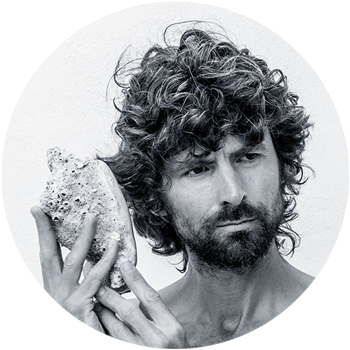
James Boag | Whole Life Yoga
The yoga of the whole human being. Practical philosophy, storytelling, movement, inquiry, looking in ways that reach beyond our habitual ways of looking.
Listen to James’ unique whole life yoga perspectives on the WHOLE LIFE YOGA podcast.

